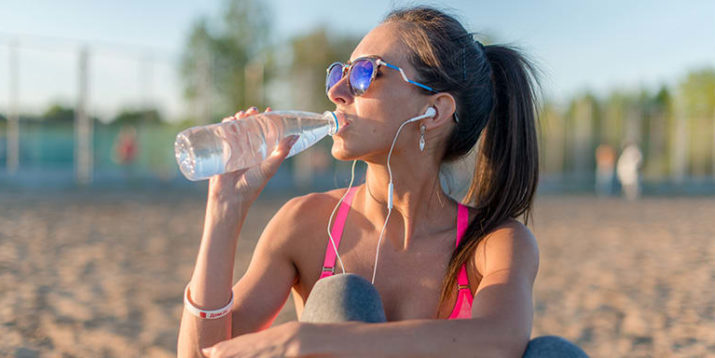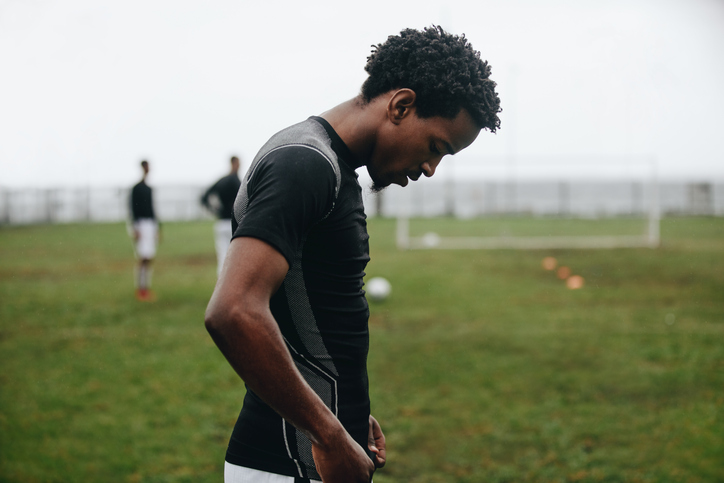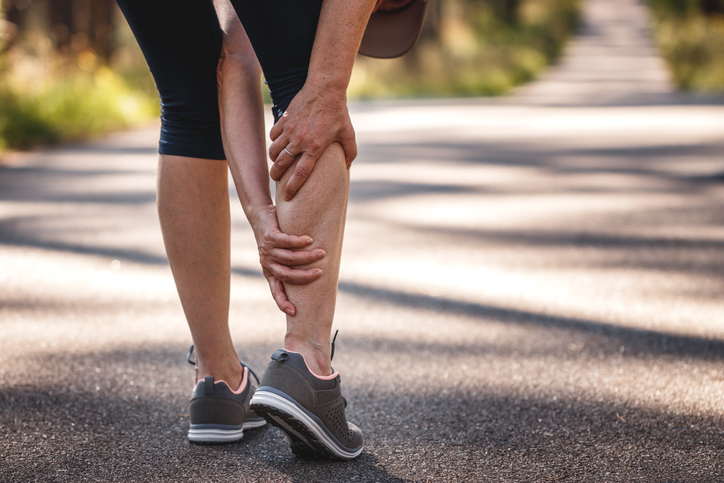4 Telltale Symptoms of Dehydration

The sweetest, sweatiest days of summer are upon us. But that doesn’t mean you shouldn’t get your exercise on.
Whether that means heading out for a humid run or torching major-league calories in a tough workout, exercising in hot and ultra-humid climates places major stress on the body.
Even more so if you’re not drinking enough water or maintaining your electrolyte balance.
The average healthy adult should consume nearly half his or her body weight, in ounces of water, according to the National Institutes of Health (NIH), and that’s just to maintain the most essential functions, such as absorbing nutrients from food and helping lubricate your skin and joints.
The amount of water, sodium, potassium and other electrolytes you have in your system pre-exercise also directly impacts your athletic performance and heart rate both during your workout and afterwards.
Considering you’re already in the first stages of dehydration if you’re feeling thirsty, it’s so important to stay hydrated even on the days you’re not exercising.
1. You Have Trouble Focusing

If your body temperature rises as high as 104° F (40° C), you may first experience headaches and nausea. These are two of the most common signs of dehydration.
Since the human brain is made up roughly of 75 percent water, dehydration can impact athletic performance and cognitive awareness, causing confusion and even delirium in more acute cases.
Research indicates that losing even two percent of your body weight from water affects your decision-making abilities and hand-eye coordination.
Dehydration may even affect your sense of direction, so if you’re getting discombobulated during longer runs or on twisty, single-track mountain bike trails, reach for the water bottle and electrolytes, take a quick break to acclimate, and then get back on track.
2. You’re More Motivated Than Coordinated
If you’ve taken a brief exercise vacation or been AWOL from your usual routine due to injury or other important obligations, you may be tempted to overdo exercise just in time for beach season.
For those who carry an extra 10 to 20 pounds, even mild dehydration may cause a dramatic reduction in performance and heat tolerance, so adjust your exercise intensity and take frequent breaks.
Also, if you have a penchant for grabbing a sugary sports drink to rehydrate and quench your thirst, you might be surprised to discover out that they actually might make the problem worse.
Instead, drink Beachbody Performance Hydrate, which contains the ideal balance of electrolytes and carbohydrates, to promote fluid retention, muscular endurance and core temperature.
3. You Feel All Kinds of Crampy

That frustrating stitch in your side is enough to bench you until further notice, right?
Water helps regulate body temperature, and when you’re not drinking enough water especially when it’s hot, research shows your muscles respond by overheating and tensing up.
And we all know that there are few sensations more unpleasant than sudden muscle cramps in your toes or a mean charley horse in your calf.
4. Your Heart Is Skipping a Beat (At Least It Feels Like It Is)
It’s not uncommon to occasionally feel out of breath during an intense workout. But take note of sudden changes in breathing and heart rate, and start cooling down and rehydrating if you feel jumpy changes in your heart’s rhythm.
Water moves nutrients through your digestive system and blood stream, which is why it’s tough for your skin, muscles and circulatory system to cleanse and support your organs properly when you’re dehydrated.
Being dehydrated can also slow down your metabolic rate, or the rate at which you burn and use calories. And that’s something pretty much no one ever wants.
If you also begin feeling excessively fatigued during even a moderate routine — and your heart is racing — you may be at risk of developing more dangerous signs of dehydration, including dizziness, vision problems and heart arrhythmias.
Start cooling down gradually, then swill water and/or a sports drink immediately.
If you do plan on exercising intensely this summer, wear sunscreen when you’re outside, modify your workouts according to the temperature in your workout space and your fitness level, and consider a sports drink in addition to drinking water before, during and after more extreme workouts. Drink up!
Note: Get immediate medical care if you develop severe symptoms of dehydration such as lack of urination, shriveled skin, fever with vomiting and delirium.
